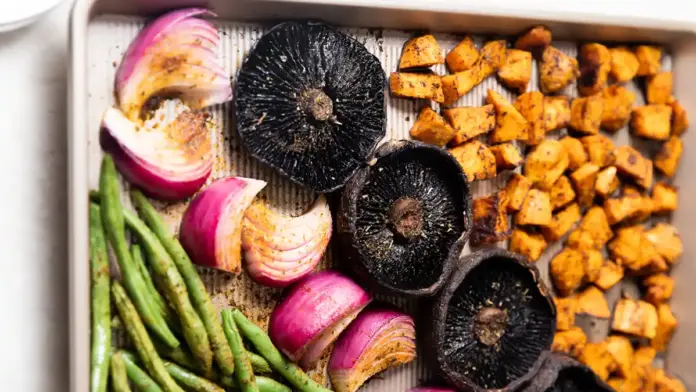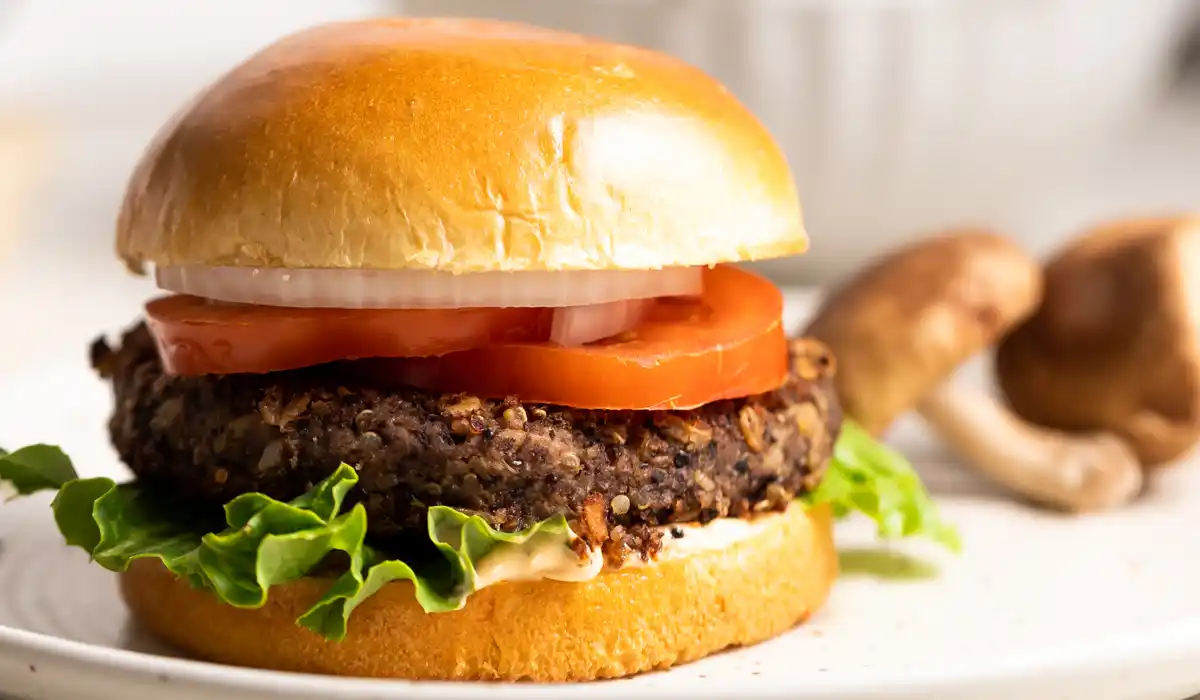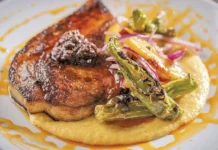
How Chefs Can Benefit From the Growing Mushroom Mania
With more Americans appreciating mushrooms, now’s the time for chefs to make ample room for this versatile fungi on their menus.
According to the Mushroom Council®, a U.S. organization representing commercial mushroom growers, fresh mushrooms have placed high on annual culinary forecasts served up by media and other trend-spotters.
Consider that in December 2022, the New York Times named mushrooms the Ingredient of the Year.
Data show the increasing popularity of mushrooms.

The Mushroom Council reported that 930 million pounds of cultivated mushrooms were sold in the U.S. last year, up by 16% since 2013.
To find out what’s driving consumer clamor for mushrooms and how chefs and foodservice operators can benefit from it, I turned to Pam Smith, a consultant for the Mushroom Council.
Pam is an internationally known registered dietitian nutritionist, foodservice industry culinary consultant, best-selling author and spice and flavor coach.
She collaborates with the Council in implementing programs and innovation that raise awareness and demand for mushrooms.
Mushrooms are playing a major role in plant-based menus. Why is this fungi getting recognition in plant-based cuisine?
At foodservice, chefs are leveraging mushrooms’ meaty texture and umami-rich flavor and relying on mushrooms to fortify builds with their inherent meat-like qualities. They are the meaty veggie!
As chefs seem to increasingly be moving away from plant-based meat alternatives, they are returning to real ingredients with mushrooms in a headlining role.
Plant-based and plant-forward menu items that star mushrooms offer their guests a familiar, all-natural option they can understand, recognize and get excited about.
The mushroom’s inherent flavor-lifting craveability, meatiness and versatility make it the ideal ingredient for creative menu development in this arena.
Culinary innovators across all foodservice segments have certainly discovered the power of mushrooms in The Blend™, the ever-popular culinary technique of combining finely chopped fresh mushrooms with ground meat for burgers and other dishes that are more nutritious, delicious and sustainable.
Now that is transitioning to plant-based menu items as well with chefs blending portabellas with lentils, crimini mushrooms with chickpeas and more.
What’s most special about The Blend is that there is no one definition.
It’s up to the chef to give it their own creative take. I’m personally excited about Shake Shack’s new mushroom and quinoa patty, which Eater recently declared was a ‘return to good old veggie burgers.’
As a spice and flavor coach, how would you encourage chefs to look to mushrooms to liven up the flavor of plant-based dishes? Can you give an example of a dish that benefits from the addition of mushrooms?
Spice and flavor are definitely on our minds as well, considering the rise of global flavors as a foodservice trend.
In fact, in a Venn diagram of plant-based recipes and globally inspired flavors, mushrooms will always be in the middle as they are the ideal central ingredient for both trends thanks to their meaty texture, savory craveability, nutritional profile and versatility.
They can be spices’ perfect partner, as they not only pair but also enhance spices’ impact – providing layers of flavor. Think Mushroom Tacos Al Pastor with Mexican oregano, smoked paprika and more.
You can find that and more recipes in a video series The Mushroom Council partnered with the Culinary Institute of America to recently launch: “Mushrooms in the Plant-Forward Kitchen,” an educational video series showcasing to chefs the many ways to incorporate mushrooms into spice-centric, globally inspired, plant-forward and plant-based cooking.
I’ve read that mushroom-based proteins are appearing in gourmet restaurants and heard about Mamu, a flavor-forward food source made from three popular mushroom species and chickpeas. Do you see this innovation as a way to increase mushroom consumption in the sustainable protein space?
Mamu combines nutritious and delicious mushrooms and chickpeas with mycelium (called mushroom root). It’s one of many ways mushrooms are showing up on menus as an operationally friendly and sustainable food source. It works particularly well in “meatballs,” tacos, chilis and other “chewy” style dishes.

Chefs can also be confident, proudly placing mushrooms as the star ingredient in their plant-forward dishes. It’s an ingredient patrons love and already have deep comfort and familiarity with.
There are no education hurdles to jump. Just look at that Shake Shack burger mentioned above.
What’s unique about mushrooms when it comes to health, nutrition and our environment?
Mushrooms aren’t just delicious on your plate, they are a healthy addition for your body. Mushrooms feature more than 12 vitamins and minerals, including B vitamins, riboflavin, niacin, selenium and vitamin D.
Studies also conclude that there is a variety of micronutrients important for supporting a healthy immune system.
Not to mention, they have 0 grams of cholesterol, 0 grams of fat, and more selenium than any other fruit and vegetable.
This is truly setting mushrooms apart as chefs plan menus to meet evolving consumer demands.
And sustainability matters! Today’s diners are increasingly making menu selections that not only contribute to their personal wellness, but also the health of the planet.
The climatarian sentiment is especially growing in the Gen Z and millennial demographic.
Mushrooms remain one of the most sustainably grown agricultural product in the nation, requiring only a fraction of the resources needed to produce other foods.
Growing a pound of mushrooms requires only 1.8 gallons of water and 1.0 kilowatt hours of energy, and generates only .7 pounds of CO2 equivalent emissions.
Mushrooms also require very little space in which to flourish, conserving soil while netting high yields.
Modern consumers use sustainability as a guideline to determine how to spend their food dollars.
Mushrooms tell a fantastic sustainability story operators can share on their menus and that diners can feel good about ordering.
How does the Mushroom Council work with chefs and foodservice operators?
The Mushroom Council represents the growers of cultivated mushrooms, and we work hands-on with chefs and menu developers on menu ideation and product development, while also providing marketing and promotion support, education and consumer insights for the foodservice industry.
Mushroom’s inherent craveability, meaty qualities and versatility make it the ideal ingredient for creative menu development using fresh mushrooms as the natural, umami-rich, plant-based center-of-the-plate star.
The greatest example of this work is the Council’s co-creation of the concept of The Blend, which mixes ground protein such as meat or pulses such as chickpeas and lentils and finely chopped mushrooms for better tasting, more nutritious and more sustainable burgers, meatloaf, meatballs, tacos and more.
The Blend has enthusiastically been adopted by college campuses, national chains, healthcare and corporate dining as a craveable plant-forward or plant-based menu solution.
Plant-based or plant-forward menu items that star mushrooms offer their guests a familiar, all-natural option that they can understand, recognize and get excited about.
For recipes and inspiration, visit the Mushroom Council website.
For menu ideation and innovation with mushrooms, foodservice industry members can reach out to pam@pamsmith.com.

























